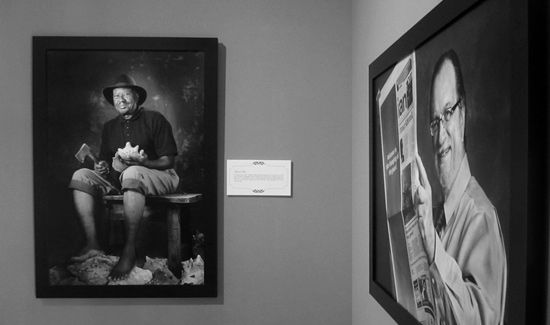 For years, animal rights activists and the Bahamas Humane Society have been trying to get the Bahamas government to do something about the high rate of animal abuse in The Bahamas.
For years, animal rights activists and the Bahamas Humane Society have been trying to get the Bahamas government to do something about the high rate of animal abuse in The Bahamas.
Pit bull death matches, cock fights, torturing turtles and abusing dogs and cats are all common practices in The Bahamas and nobody in government has ever done much to stop that sort of behaviour.
In recent years, a strong connection has been documented linking animal abuse and violence in a society, particularly domestic violence.
And few countries in the Western world have the amount of domestic violence as what occurs in The Bahamas.
Women are treated as second-class citizens, denied rights in the Constitution of The Bahamas based on gender. When Prime Minister Hubert Ingraham tried to change the flawed constitution with an amendment in 2000, voters chased him out of office.
When he tried to introduce a marital rape law, even pastors said it was “okay” to rape your wife. “God said so,” they cried.
Policemen, politicians and common folk are all allowed to beat their wives in The Bahamas, with little or no repercussions. Despite the high number of occurrences of spousal abuse, convictions for such crimes is rare.
Not a week goes by without a pastor, politician or policeman being accused of raping a young girl. Yet, again, convictions for such crimes, especially when committed by the “elite”, are rare – as the Randy Fraser trial will probably prove.
The Bahamas has one the highest rape levels anywhere in the developed world. And many rapes go unreported.
Much of this violence in today’s society was spawned by animal abuse by children.
A study in New Jersey showed that in 88 percent of families where there had been physical abuse of children, there were also records of animal abuse. Another study in Wisconsin found that battered women revealed that, in four out of five cases, abusive partners had also been violent toward pets or livestock.
Women who seek safety from abusive men by going to shelters in the United States are nearly 11 times more likely to report that their partner has hurt or killed their animals than women who have not experienced domestic abuse.
When a cat left footprints on Randy Roth’s newly waxed car, he caught the cat and used duct tape to bind it to the driveshaft of its owner’s car. When the car was started, the cat was quickly dismembered, its screams muffled by the sounds of the engine. Roth later murdered his wife by drowning her near Bellevue, WA.
Richard Davis reportedly set fire to cats and used dogs for target practice as a child. He was convicted of murdering 12-year-old Polly Klaas after kidnapping her from her Petaluma, CA home.
Jeffrey Dahmer had an early fascination with dismembering animals. He tortured and cannibalized 11 people.
David Berkowitz shot his neighbor’s dog. He confessed to six murders as the Son of Sam.
Albert DeSalvo put dogs and cats in crates and then shot them with arrows. He is better known as the Boston Strangler.
The list goes on and on. When asked how many serial killers had a history of abusing animals, FBI Special Agent Alan Bradley answered, “The real question should be, how many have not?”
Research indicates that there is legitimate evidence that individuals involved in violent acts against animals present a danger to the public that must be addressed.
Intentional animal abuse is often seen in association with other serious crimes including drug offenses, gang activity, weapons violations, sexual assault and domestic violence. It can be one of the most visible parts of an entire history of aggressive or antisocial behavior.
Confirming research done in the U.S., for the first time in The Bahamas a researcher has identified a link between animal cruelty and violence in society, particularly domestic violence.
Dr. William J. Fielding, Director of Planning at The College of The Bahamas (COB), has completed a new study which examines the harming of animals by children in The Bahamas and the link between animal cruelty and domestic violence.
Dr. Fielding presented an excerpt of his work, “A First Look at Harm Toward Animals by Bahamians in Childhood” during the launch of the International Journal of Bahamian Studies, held at COB yesterday.
The study, which was compiled over the last 18 months, also reveals that domestic violence can later spawn violent behavior in children.
“This research article builds on previous work that we have done that looks at the connection between animal cruelty and domestic violence,” Dr. Fielding said.
“We have taken this a stage further, looking at how we treat animals in our childhood and the environment in which those children were brought up. We found a number of interesting links, such as violence in the household and the presence of a gun in the household all seem to be linked with children having a higher risk of harming animals.”
Dr. Fielding said that as people get older, they usually start to show a certain degree of remorse for the acts of cruelty they had committed toward animals when they were children.
However, he also said that there are persons who do not show such remorse, which is a cause for concern because empathy towards animals and empathy towards people are linked.
Dr. Fielding’s work confirms what other researchers around the globe have found. His research will be presented at the 2011 College of The Bahamas Research Symposium, which will occur at the Performing Arts Centre of the Oakes Field campus on Thursday.
“It is anticipated that the research findings will contribute to national development by allowing an informed debate on issues surrounding crime,” Dr. Fielding said.
Hopefully, this new research will convince Bahamian politicians to do the right thing and start really enforcing laws against animal cruelty.


